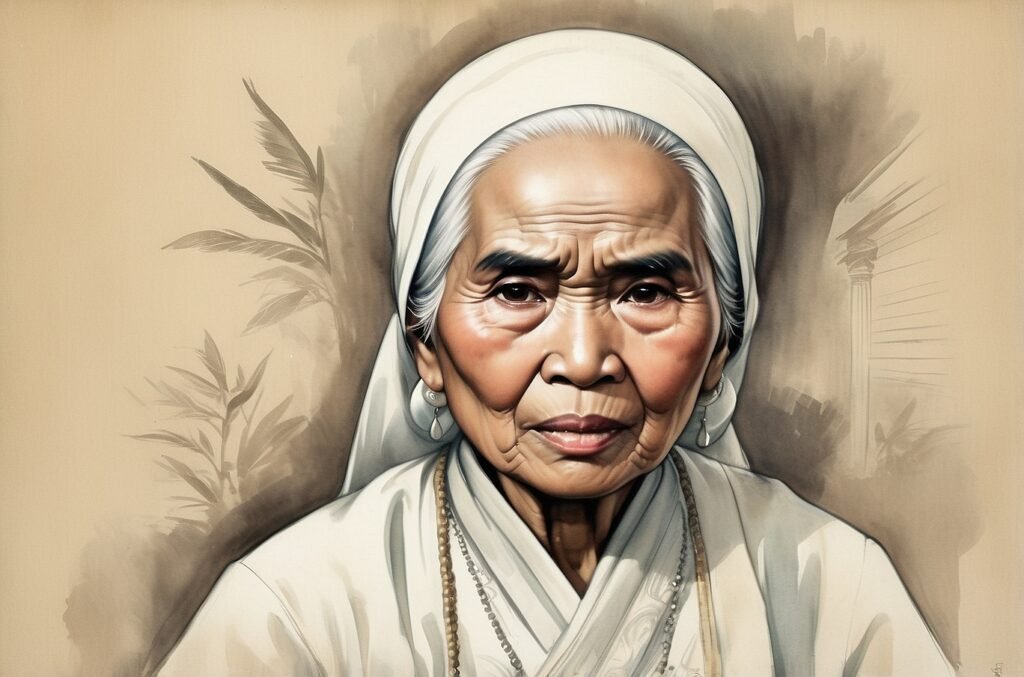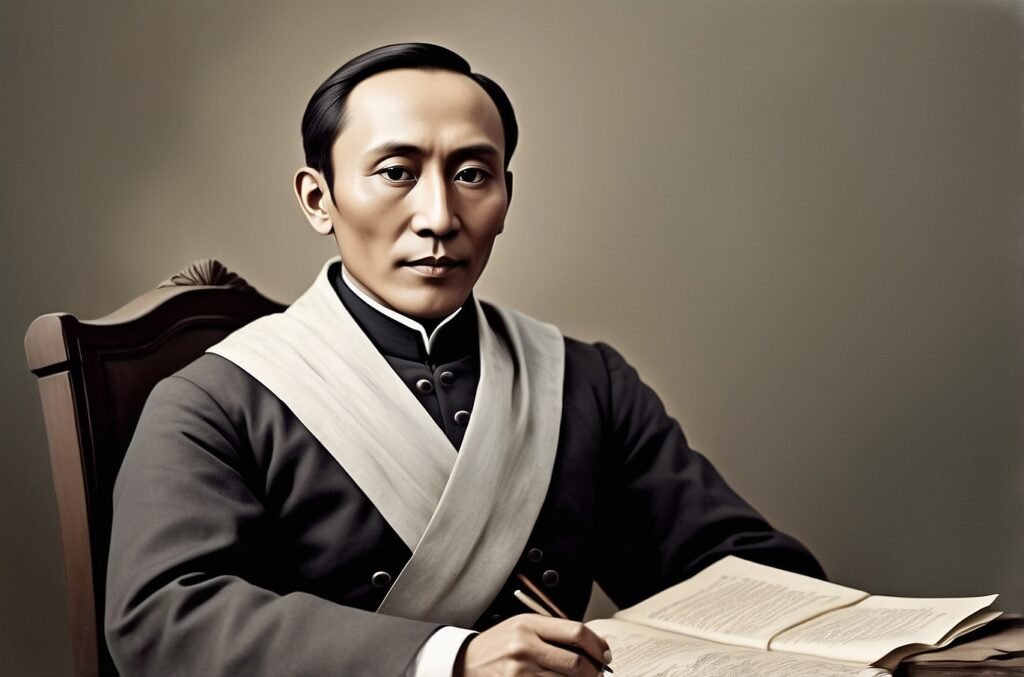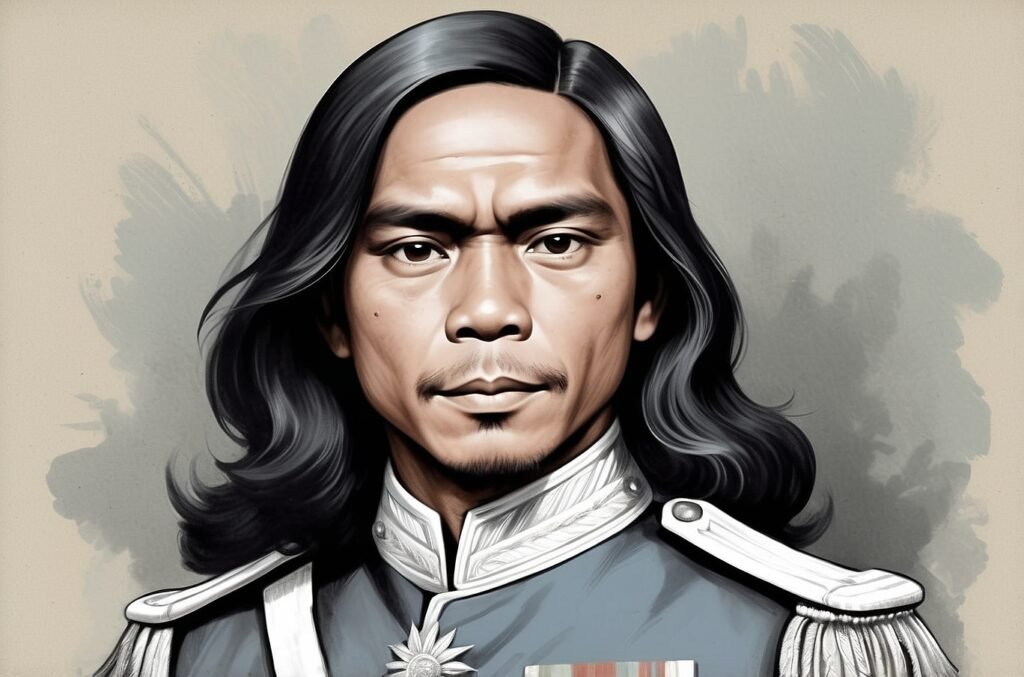Melchora Aquino, better known as “Tandang Sora,” stands as one of the most revered figures in Philippine history. Born in the late 18th century, she lived through a tumultuous period that saw the Philippines transition from Spanish colonial rule to a burgeoning independent nation. Aquino’s unwavering support for the Philippine Revolution and her selfless acts of kindness earned her the moniker “Mother of the Revolution.” This blog delves into the life, contributions, and lasting legacy of Melchora Aquino, exploring how her actions during a critical period in Philippine history continue to inspire generations of Filipinos to this day. Through her story, we gain insight into the role of ordinary citizens in shaping the course of a nation’s struggle for independence and the power of compassion in times of conflict.
Early Life and Background
Birth and Family
Melchora Aquino was born on January 6, 1812, in Bangkal, Caloocan, which was then part of the province of Tondo (now part of Metro Manila). She was the daughter of Juan and Valentina Aquino, a peasant couple who made their living through farming. Growing up in a rural setting, Aquino was exposed to the hardships faced by the common people under Spanish colonial rule. This early exposure to social inequalities would later shape her worldview and inspire her actions during the revolution.
Education and Early Adulthood
Despite the limited opportunities for formal education available to women and peasants during that time, Aquino managed to learn how to read and write. She developed a passion for religious texts and folk songs, which she would often perform at local gatherings. As a young woman, Aquino married Fulgencio Ramos, a cabeza de barangay (village chief). Together, they had six children. Unfortunately, Ramos passed away early, leaving Aquino a widow. This personal tragedy did not deter her spirit; instead, it strengthened her resolve to support her community and raise her children with strong values.
Life in 19th Century Philippines
To provide context for Aquino’s life, it’s important to understand the social and political landscape of 19th century Philippines:
| Aspect | Description |
|---|---|
| Political System | Spanish colonial rule |
| Social Structure | Hierarchical, with Spanish officials and clergy at the top |
| Economy | Agriculture-based, with a feudal-like system |
| Education | Limited, primarily for the elite and focused on religious instruction |
| Healthcare | Rudimentary, with high mortality rates |
| Transportation | Mostly by foot, horse, or small boats |
This table illustrates the challenging environment in which Aquino lived and highlights the significance of her later actions in support of the revolution.
The Philippine Revolution: Context and Causes
Rising Discontent
The late 19th century saw a growing sense of discontent among Filipinos towards Spanish colonial rule. Several factors contributed to this unrest:
- Economic exploitation
- Religious oppression
- Lack of political representation
- Social inequality
- Exposure to liberal ideas from Europe
These grievances led to the formation of various revolutionary groups, most notably the Katipunan, founded by Andres Bonifacio in 1892.
The Katipunan and the Outbreak of Revolution
The Katipunan, short for “Kataas-taasang, Kagalang-galangang Katipunan ng mga Anak ng Bayan” (Highest and Most Honorable Society of the Children of the Nation), was a secret revolutionary society that aimed to gain independence from Spain through armed struggle. As tensions escalated, the Spanish authorities discovered the existence of the Katipunan in August 1896, leading to the outbreak of the Philippine Revolution.
Melchora Aquino’s Role in the Revolution
The Refuge of Revolutionaries
At the age of 84, when many would have chosen a quiet retirement, Melchora Aquino found herself at the heart of the Philippine Revolution. Her home in Balintawak became a sanctuary for members of the Katipunan, including its leaders. Aquino provided food, shelter, and moral support to the revolutionaries, often at great personal risk. Her actions were crucial in sustaining the early stages of the revolution, as she offered a safe haven for strategy meetings and a place for the wounded to recuperate.
The “Mother of the Revolution”
Aquino’s contributions to the revolutionary cause went beyond providing material support. Her unwavering spirit and encouragement became a source of inspiration for the Katipuneros. She was affectionately called “Tandang Sora” (Elder Sora), a term that reflected both her advanced age and the respect she commanded. The revolutionaries also began referring to her as the “Mother of the Revolution,” acknowledging her nurturing role in the movement.
Arrest and Exile
The Spanish authorities eventually became aware of Aquino’s support for the revolutionaries. In August 1896, she was arrested and interrogated. Despite her advanced age, Aquino refused to divulge any information about the Katipunan or its members. Her loyalty and bravery in the face of adversity further cemented her status as a hero of the revolution. As punishment for her involvement, Aquino was exiled to Guam, where she remained until the end of Spanish rule in the Philippines.
Impact and Legacy
Inspiration for Future Generations
Melchora Aquino’s actions during the Philippine Revolution have had a lasting impact on Filipino culture and national identity. Her story serves as an inspiration for several reasons:
- Age is no barrier to patriotism
- The power of ordinary citizens in shaping history
- The importance of compassion and support in times of conflict
- The strength of women in national struggles
Honors and Commemorations
The Philippine government and various organizations have honored Melchora Aquino in numerous ways:
- Tandang Sora Avenue, a major road in Quezon City, is named after her
- Her image has appeared on the Philippine five-centavo coin
- A district in Quezon City bears her name
- Several schools and institutions are named in her honor
- Her birthdate, January 6, is commemorated annually
Cultural Representations
Aquino’s life and contributions have been depicted in various forms of media and art:
| Medium | Examples |
|---|---|
| Literature | Biographies, historical novels |
| Theater | Plays depicting her life and the revolution |
| Visual Arts | Paintings, sculptures, murals |
| Film and Television | Historical documentaries, biopics |
| Music | Folk songs, patriotic compositions |
These cultural representations help keep Aquino’s memory alive and continue to educate new generations about her role in Philippine history.
Historical Context: Women in the Philippine Revolution
Breaking Traditional Roles
Melchora Aquino’s involvement in the Philippine Revolution was part of a broader trend of women participating in the struggle for independence. While traditional Filipino society often relegated women to domestic roles, the revolution provided an opportunity for them to contribute significantly to the cause. Women like Aquino, Gregoria de Jesus, and Teresa Magbanua challenged societal norms and demonstrated that patriotism and bravery were not exclusive to men.
Roles of Women in the Revolution
Women played various crucial roles during the Philippine Revolution:
- Intelligence gathering and communication
- Nursing and medical support
- Fundraising and resource mobilization
- Combat (in some cases)
- Moral support and inspiration
Aquino’s role as a supporter and nurturer of revolutionaries was particularly significant, as it highlighted the importance of non-combatant contributions to the struggle.
Comparative Analysis: Melchora Aquino and Other Revolutionary Figures
To better understand Aquino’s place in Philippine history, it’s useful to compare her with other significant figures of the revolution:
| Figure | Role | Contribution | Similarity to Aquino |
|---|---|---|---|
| Andres Bonifacio | Founder of Katipunan | Led the start of the revolution | Shared commitment to independence |
| Emilio Aguinaldo | Revolutionary leader and first President | Led military campaigns | Different role but shared goal |
| Apolinario Mabini | Intellectual and advisor | Provided ideological framework | Supported revolution through non-military means |
| Gregoria de Jesus | Katipunan member | Active participant in revolutionary activities | Woman who defied traditional gender roles |
This comparison illustrates that while Aquino may not have been a military or political leader, her contributions were equally vital to the revolutionary cause.
The Relevance of Melchora Aquino in Modern Philippines
Lessons for Contemporary Society
The life and actions of Melchora Aquino continue to offer valuable lessons for modern Filipino society:
- Civic Responsibility: Aquino’s willingness to support a cause greater than herself exemplifies the importance of civic engagement.
- Resilience: Her ability to persevere despite personal hardships and political persecution demonstrates the power of resilience.
- Empowerment of the Elderly: Aquino’s contributions in her eighties challenge ageist assumptions and highlight the potential of older citizens to contribute meaningfully to society.
- Gender Equality: Her role in the revolution serves as a reminder of women’s capabilities and the importance of gender equality in nation-building.
- Compassion in Conflict: Aquino’s nurturing role during a violent revolution underscores the importance of compassion and support even in times of conflict.
Educational Initiatives
To ensure that Aquino’s legacy continues to inspire future generations, various educational initiatives have been implemented:
- Inclusion of her story in Philippine history curricula
- Development of educational materials focusing on her life and contributions
- Establishment of museums and historical sites related to her life
- Organization of competitions and events that promote awareness of her legacy
These initiatives aim to keep Aquino’s memory alive and relevant in the context of modern Philippine society.
Conclusion
Melchora Aquino, the “Tandang Sora” and “Mother of the Revolution,” remains a towering figure in Philippine history. Her unwavering support for the cause of independence, her bravery in the face of persecution, and her compassion for those fighting for freedom have earned her a place among the nation’s most revered heroes. Aquino’s life serves as a powerful reminder that age, gender, and social status are no barriers to making a significant impact on the course of history. As the Philippines continues to face new challenges in the 21st century, the example set by Melchora Aquino – of selflessness, courage, and dedication to a greater cause – remains as relevant and inspiring as ever. Her legacy continues to shape the national consciousness and inspire Filipinos to work towards a better future for their nation.
Disclaimer: While every effort has been made to ensure the accuracy of the information presented in this blog, historical accounts may vary, and new research might reveal additional facts about Melchora Aquino’s life and the events of the Philippine Revolution. Readers are encouraged to consult multiple sources and engage in critical thinking when studying historical figures and events. If you notice any inaccuracies in this blog, please report them so we can correct them promptly.




